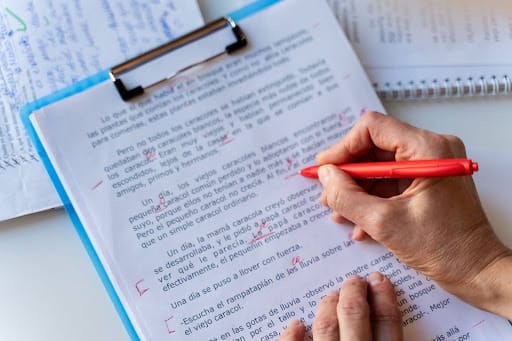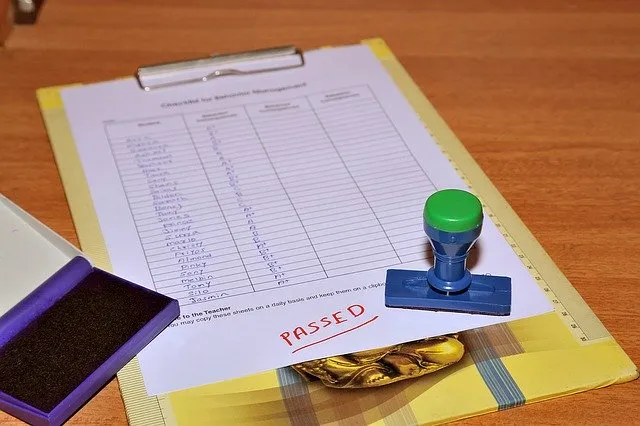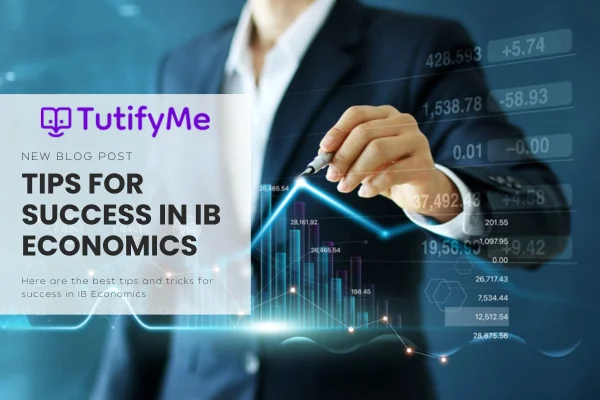IB Economics of the International Baccalaureate has proven itself to be one of the programs with not only complexity but earning major credits in terms of critical economic knowledge, critique and application. It is important, however, to keep in mind that mere effort is not sufficient for achieving success in the subject—one should see the constructs of this discipline including its concepts, examining patterns, and resources as the subject’s facets.
In this thorough piece, we will look at all the aspects that are required for the successful attainment of the course IB economics, including exam and study approaches as well as the crucial areas. Whatever your position is, either a student or a tutor whose remit is to see progress of other people, the article explicitly outlines and details all necessary actions which are to be carried out.
IB Economics:
IB Economics belongs to Group 3 subjects offered under the IB diploma’s subject grouping. Its teaching is carried out on lower and upper levels SL and HL levels respectively and its aim is to enhance the student’s appreciation of the various economic concepts and their theoretical and practical applications in the real world. This course has four main themes: microeconomics, macroeconomics, international economics, and development economics. The topics enable students to practice the invaluable skills of critical analysis of the economic issues by providing them with different perspectives about the operations of economics in both small and large subsets of the economy.

Content and Assessment in IB Economics:
The IB Economics syllabus is divided into two levels of study, Standard Level (SL) and Higher Level (HL). The core concepts for each level are the same but students undertaking HL programs are examined on extra concepts and topics which are more involved and rigorous than the SL students.
Mastering IB Chemistry: 5 Essential Tools for Success
Unlocking Success in IB Physics: 5 Proven Strategies
Mastering IB Biology: Must-Haves for Success
Standard Level (SL):
Covers the four main topics including microeconomics, macroeconomics, international economics and development economics.
Students are expected to take 3 external exams as well as 1 internal assessment.
Higher Level (HL):
Students are also required to take 3 external exams and 1 internal assessment however the questions are more detailed than SL.
Main Ideas in IB Economics:
Students learning economics at IB level have to be acquainted with the main ideas in each of the four units because these units are the building blocks of the subject and they are essential in passing the examinations and the Internal assessments.
Microeconomics:
Microeconomics focuses on the activities of an intricately defined market or the activities of a particular firm. These include the determination of price and quantity of goods and services, elasticity, various market forms and failures, etc. How these concepts interact will help the student analyze the circumstances of real economic activities.
Macroeconomics
Macroeconomics deals with the economy in totality and studies the big picture outcomes like national income, inflation, unemployment, etc. This unit also helps students understand fiscal and monetary policies, providing them with knowledge about government interventions and their effects on economic conditions.
International Economics:
This unit studies the interactions of different countries with respect to trade, exchange rates, or globalization. Students will evaluate the advantages and disadvantages of free trade, tariff policies, and policies concerning exchange rates.
Development Economics:
Development economics relates to the problems and opportunities of low-income countries. Relevant issues include poverty, inequality, sustainable development, and the role of international organizations such as the World Bank and IMF.
Significance of The Economic Theories
The economic theories are of utmost necessity for the IB Economics. They help in understanding the economics problems and in forecasting their solutions. Students must try to know the classical and also, the contemporary economic theories and be ready to make good use of them in practical situations.

Internal Assessments IA academic paper
Internal Assessment Henry Needed in IB Principles of Economics Michael Commentaries arising from IA Should apply theory to real life situations. Write 3 commentaries on recent news articles concerning the economy and use them for IA assignment. Each of the commentary should be on different aspect of the syllabus i.e. microeconomics or industrialization economics or development economics.
How to Perform in IB Economics Examination
In most cases, failure in America very nearly involves a failure to study extensively. Here are simple and useful repeatable proven study methods that any student can apply to ensure they pass the subject:
Be Ruthless with Time: Allocate your syllabus into smaller portions and be studying all the time.
Make a note of what is left out. Repetitively flash through economic phrases and definitions in flash cards.
Individual Interaction and group Interaction: Talk with fellow students about questionable economic theories.
Representation of Ideas Like: draw graphs especially in cases of supply and demand inflation and market structure.
Common Mistakes to Avoid
There is quite a number of avoidable mistakes that students make which ends up hindering them in their journey of learning IB Economics. The issues highlighted below are some of the common mistakes that should be avoided:
Failure in interpreting diagrams: Diagrams are important in economics and economics is visual as well as verbal. Never walk away from economics without being able to read and sketch economics diagrams.
Lack of revision: Adequate help in making sure that the important concepts are retained is regular revision.
Disregarding real life situations: Make sure that your economic theories are rooted in real life situations.

Time Management Strategies for IB Economics Success:
Time is very important to manage in any aspects of IB Economics especially when it comes to preparation for examinations or even during the writing of IAs. The tips below can assist you manage your workload and avoid falling behind your targets:
Organise Your Work: Concentrate on the areas in the map where you perform below the target curve.
Set Specific Goals: Operationalize your study goals by setting tasks such as studying one chapter or completing diagrams practice.
Avoid Procrastination: Start as early as possible so as to make sure that you cover all the content during revision.
Practice Makes Perfect: Solving Past Papers
Solving past papers is one of the best ways to prepare for the IB economics exams. It enables students to become accustomed to the types of questions that are going to be asked and how best to answer them.
Practice regularly: Look for an hour in your schedule every week to complete past papers.
Time yourself: When doing papers, understand that they are timed to mimic exam conditions.
Review your answers: Another person should go through your answers with you, preferably a tutor or a peer.
IB Economics Exam: Tips and Tricks
When it comes to real exam circumstances, strategy is the most important factor. Here are some options to improve one’s chances of success.
Understand the Command Terms: IB Economics exams allow use of command terms like “evaluate” or “discuss”. Ensure that you follow the outlines of each command term.
Plan Your Answers: Make a rough plan of how the essay is going to look before writing it in order to avoid vague sentences.
Use Real World Examples: In cases where it is applicable, provide an example of an economic issue that is in the news.
How Mastering IB Economics Requires One-on-One Online Tuition
For students who find IB Economics difficult, getting personalized teaching can work wonders. A student who is tutored receives critical attention and support, addressing his areas of weakness. At TutifyMe, we have qualified IB Economics tutors who guide students in their studies.

How Important Are Economic Diagrams For IB Economics
In the IB Economics course, particular diagrams are not meant to be merely decorative images; they are functional components of the analysis. Knowing how to use diagrams in the right manner is vital for achieving success in internal assessments and exams. Some key diagrams include:
Supply and Demand Curves: Used to illustrate equilibrium in a market, the movement of these curves and the impacts of taxes, and other factors such as price ceilings or floors on a market.
Phillips Curve: The Phillips curve depicts the tradeoff between inflation and unemployment in the short term.
Lorenz Curve and Gini Coefficient: Estimate the level of income concentration and have great relevance to the subject matter of developmental economics.
Production Possibility Curve (PPC): This is usually used to depict opportunity cost, efficiency and economic growth.
Students should not only understand the procedures of performing well in exams, in this case drawing these diagrams. They should also comprehend how to articulate these diagrams when and where appropriate economic theory dictates.
How to Tackle Case Studies and Practical Examples
In line with the principles of the IB Economics syllabus, it expects learners to be able to apply theoretical ideas into practice in real life contexts. For this to be achieved students need to:
Follow up on Global Events: It is imperative to understand foreign events. Global trends like fall in oil prices, trade wars, or changes in monetary policy can all serve as good exam and internal assessment examples.
Familiarize with Economic Indicators: Take note of various indicators such as the rate of inflation, GDP growth, unemployment rates and figures and balance of trade. Quite a number of these figures are critical in the interpretation of economic phenomena.
FAQs
1. What is IB Economics?
IB Economics is a subject in the International Baccalaureate Diploma Programme that explores how economies function and how economic agents interact.
2. How can I improve my performance in IB Economics?
Consistent study, understanding key concepts, practicing past papers, and seeking personalized tutoring are some of the most effective ways to improve your performance.
3. Can online tuition help me succeed in IB Economics?
Yes, online one-on-one tuition can provide personalized instruction, helping you focus on your weaknesses and improve your overall understanding of the subject

